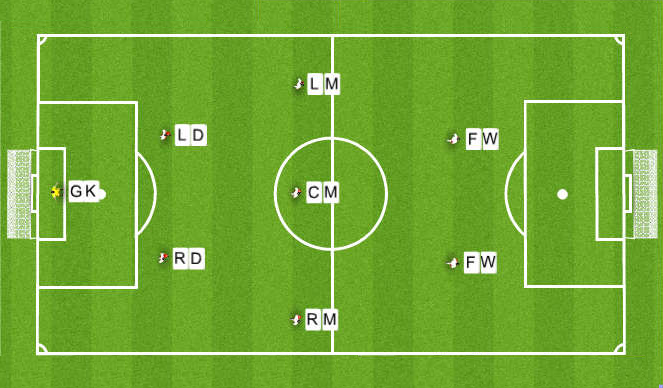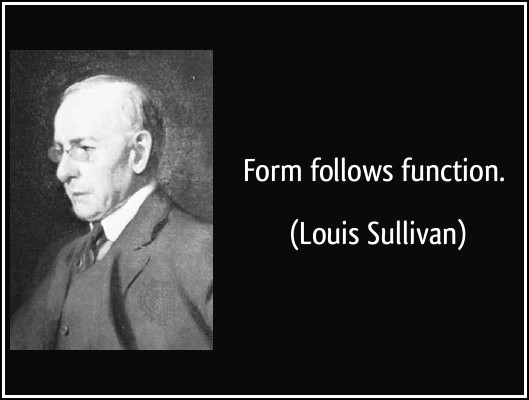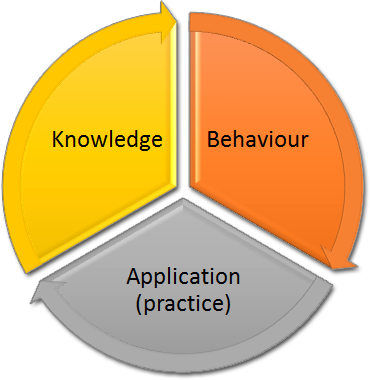What's the Score? Measuring Sales Force Effectiveness
Measurement of your sales team should be straight forward. More sales = Better performance right? The problem is that traditional methods of measurement don’t account for environmental factors and other influences – i.e. how you arrived at that point.

To put it another way, sales is not just a simple number used to measure success, it is actually the sum of all inputs prior to the actual transaction. Thus for anyone who is charged with managing sales effectiveness, sales figures are like the score at the end of the football match. They tell you little about how the game was played let alone how you might be able to improve things next time around.
Before we start a discussion on what should be measured, perhaps we should also consider whether we need to measure at all. Why should you measure? After all, if I continue the analogy of the football match, as long as we are winning does it matter how? Probably not -as long as your winning!
The question is, can you be sure you will win every time? In sports, what it takes to win is reasonably well established. You need to have the right players, you need to have the right training and fitness programs, you need the right strategy and you need a little luck, just like in sales.
The challenge for sales effectiveness managers is what does ‘right’ mean in this context? Allow me to share with you my favourite architectural quote, by Louis Sullivan:
“Form follows function.”
In pharma sales this means: what is right depends on what you need to do in your market with your product against your competition to be successful.
The problem of measuring sales effectiveness then rests in understanding what ‘right’ is for you.
In the past this was relatively simple in pharma. We had well differentiated products that were unique in their characteristics and the doctor’s decision making process was well understood and relatively simple.
It was common knowledge that it takes on average (in the UK) five visits to get a doctor to change his prescribing behaviour. In fact, it was possible to buy doctor prescribing data that allowed you to produce targeting lists. The predictability was good enough for you to obtain commercially produced targeted lists that were still effective. Ahhh, wasn’t life was simpler!
The basic principles of what it takes to make the sale in Pharma are still the same to this day. However, there is an increasing level of complexity as a result of the changing market place, lower differentiation in company product portfolios, health economic factors and increasing global competition all muddy the once clear waters. This complexity has resulted in significant differences in the drivers of sales from territory to territory and country to country.
Given all these variables you can understand the frustration of sales managers who often say “Things have become so complex that what we used to measure, such as call rates, customer and territory coverage are no longer enough to give you a firm basis for managing your sales efforts.”
What is needed to succeed in one sales territory is unlikely to be the same in another. So, what should we measure that is meaningful and consistent within the organisation?
The answer lies in the engineers’ quote “form follows function”. You measure what you need to do in your marketplace with your product against your competition to be successful – in other words, deduce what is required to succeed and reshape your measurements based on those requirements.
In my very first article for this column, I mentioned that “a poor understanding of what is required to get the sale is the most frequent reason for the failure of all elements of the sales process.”
Before you start to measure, you must establish what it takes to get a sale. In general these requirements can be split into the efficiencies (quantitative) of work and effectiveness (quality) of work. I do believe the “quantitative” component, has been well covered. An example of the rationale and measures is given below:
Quantitative
Who do I need to see?: Targeting
How many do I need to see?: Coverage
How often do I need to see them?: Frequency
In my opinion, Sales effectiveness is about how well you are performing in your required activities. This is by definition qualitative and therefore an analysis of skillset.
Skill can be split into 3 components:
- Knowledge: if you don’t know what to do you cannot possibly do it.
- Behaviour: if you don’t know how, you will still not be able to do it.
- Application: if you know what to do and how to do it but you don’t do it, the result is the same in terms of the displayed skill which is what the sales effectiveness manager is interested in.
Sales Measurement
So how do we dig deeper? How do we look beyond the score at full time? Below is a summary list of three key areas to measure:
Knowledge:
- Customer
- Selling skills
- Product
- Therapeutic area
- Competitor
- Marketing strategy
Knowledge can be simply measured by a range of examination/testing tools and I believe is a part of every company’s sales efficiency programs.
Behaviour:This is difficult and time consuming to measure because of the interactive nature of behaviour. Typically this is done subjectively by assessing performance in role-play and/or field observation. The consistency and value of these observations depends on the tools that are provided to the observers to ensure they are looking for the right things and recording these in the right way.
Application:This can be readily incorporated into or taken from the quantitative measure mentioned above.
To conclude, If all you want to know is how well you are doing, if you won or lost, then just keep score. Sales is enough.
If you really want to know how you won or lost, what makes you successful or a failure, then measure both quantitative and qualitative components to ensure that not only are you doing the right things, but also that you are doing them well.
Questions or comments? You can share you thoughts with our audience in the comments section below, alternatively you can email the author directly at Ifti.ahmed@titanium-partners.net.



